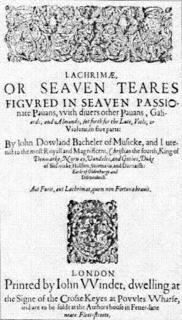A Quote by Alexander Hamilton
To look for a continuation in harmony between a number of independent unconnected sovereignties, situated in the same neighborhood, would be to disregard the uniform course of human events, and to set at defiance the accumulated experience of ages.
Related Quotes
If you have an all-white neighborhood you don't call it a segregated neighborhood. But you call an all-black neighborhood a segregated neighborhood. And why? Because the segregated neighborhood is the one that's controlled by the ou - from the outside by others, but a separate neighborhood is a neighborhood that is independent, it's equal, it can do - it can stand on its own two feet, such as the neighborhood. It's an independent, free neighborhood, free community.
Let's not forget that for thousands of years the institution of marriage has been between a man and a woman. Until quite recently, in a limited number of countries, there has been no such thing as a marriage between persons of the same gender. Suddenly we are faced with the claim that thousands of years of human experience should be set aside because we should not discriminate in relation to the institution of marriage. When that claim is made, the burden of proving that this step will not undo the wisdom and stability of millennia of experience lies on those who would make the change.
We have the same genetic code for all living creatures. We have a large number of genes that are manifestly the same, but with detail differences - they look like different drafts of the same book. In extreme cases, like a human and a beetroot, it's like the difference between Matthew and Luke's Gospel - clearly they tell the same story, but with different words. Whereas with a human and a chimp, it's like two different printings of Matthew, with a few typos in one.
A multitude of uniform, unidentifiable houses, lined up inflexibly, at uniform distances, on uniform roads, in a treeless communal waste, inhabited by people of the same class, the same income, the same age group, witnessing the same television performances, eating the same tasteless prefabricated foods, from the same freezers, conforming in every outward and inward respect to the common mold.
We think of the number "five" as applying to appropriate groups of any entities whatsoever - to five fishes, five children, five apples, five days... We are merely thinking of those relationships between those two groups which are entirely independent of the individual essences of any of the members of either group. This is a very remarkable feat of abstraction; and it must have taken ages for the human race to rise to it
On the most usual assumption, the universe is homogeneous on the large scale, i.e. down to regions containing each an appreciable number of nebulae. The homogeneity assumption may then be put in the form: An observer situated in a nebula and moving with the nebula will observe the same properties of the universe as any other similarly situated observer at any time.
Observation is so wide awake, and facts are being so rapidly added to the sum of human experience, that it appears as if the theorizer would always be in arrears, and were doomed forever to arrive at imperfect conclusion; but the power to perceive a law is equally rare in all ages of the world, and depends but little on the number of facts observed.
In silence, we are better able to listen to and understand ourselves; ideas come to birth and acquire depth... Deeper reflection helps us to discover the links between events that at first sight seem unconnected... For this to happen, it is necessary to develop an appropriate environment, a kind of 'eco-system' that maintains a just equilibrium between silence, words, images and sounds.

































